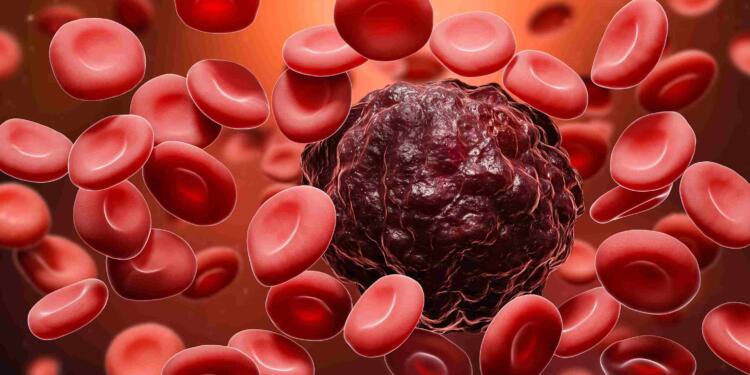Recent studies showcased at the world’s premier cancer conference indicate a significant shift in oncological practices towards a minimalist approach. This approach entails reducing the intensity of treatment across various cancer types, including ovarian and esophageal cancer, as well as Hodgkin lymphoma. Such modifications aim to enhance patient comfort and well-being without compromising treatment efficacy.
A Historical Shift: From More to Less
Three decades ago, the prevailing ethos in cancer treatment emphasized aggressive intervention, often resulting in debilitating side effects and marginal improvements in patient outcomes. For instance, in advanced breast cancer cases, aggressive chemotherapy and invasive procedures yielded little benefit, while subjecting patients to immense suffering.
Embracing Minimalism in Cancer Care
Contemporary oncological research is challenging the conventional wisdom by questioning the necessity of aggressive treatments. This paradigmatic shift underscores a fundamental query: Is maximal treatment truly indispensable?
Dr. Tatjana Kolevska, Medical Director for the Kaiser Permanente National Cancer Excellence Program, stresses the importance of continually reassessing treatment protocols to align with evolving medical insights.
Efficacy through Moderation
Advancements in drug therapies have facilitated a more nuanced approach to cancer treatment. Dr. William G. Nelson of Johns Hopkins School of Medicine underscores this positive development, highlighting that modern treatments are not only more effective but also gentler on patients, mitigating both short-term and long-term complications.
Key Findings from Recent Studies
At the American Society of Clinical Oncology conference, several groundbreaking studies were presented, elucidating the benefits of minimalist strategies across different cancer types.
Ovarian Cancer
French researchers conducted a seminal study demonstrating the safety and efficacy of sparing apparently healthy lymph nodes during surgery for advanced ovarian cancer. This comparative study, funded by the National Institute of Cancer in France, revealed comparable survival rates between patients who underwent conventional lymph node removal and those who did not. Moreover, patients subjected to less aggressive surgery experienced fewer postoperative complications.
Esophageal Cancer
A German study involving individuals with esophageal cancer explored two treatment approaches: one involving chemotherapy and surgery, and the other incorporating additional radiation therapy. After three years, findings indicated comparable survival rates between the two groups, with a slightly higher survival rate observed in the chemotherapy and surgery cohort. This study, funded by the German Research Foundation, sheds light on the variability in treatment approaches and their impact on patient outcomes.
Hodgkin Lymphoma
An international collaboration spanning nine countries compared two chemotherapy regimens for advanced Hodgkin lymphoma. Results indicated that the less intensive chemotherapy regimen not only demonstrated comparable efficacy in disease management but also exhibited fewer adverse effects. This extensive trial, funded by Takeda Oncology, underscores the potential of minimalist approaches in optimizing treatment outcomes for hematological malignancies.
Expanding on the Minimalist Approach
The shift towards minimalist cancer treatment extends beyond clinical trials to everyday practice. Oncologists are increasingly adopting tailored treatment plans that prioritize patient well-being while ensuring therapeutic effectiveness.
Patient-Centered Care
Central to the minimalist approach is a focus on patient-centered care. By engaging patients in shared decision-making, oncologists can better understand their preferences, values, and treatment goals. This collaborative approach fosters trust and empowers patients to actively participate in their care journey.
Personalized Medicine
Advancements in genomic profiling and molecular diagnostics have revolutionized cancer care, enabling oncologists to personalize treatment strategies based on individual tumor characteristics. Precision medicine allows for targeted interventions, minimizing unnecessary exposure to aggressive therapies and associated side effects.
Multidisciplinary Care Teams
Effective cancer management necessitates a multidisciplinary approach, involving collaboration among oncologists, surgeons, radiation oncologists, nurses, and allied health professionals. By leveraging collective expertise, care teams can tailor treatment plans to address the unique needs of each patient, optimizing outcomes while minimizing treatment burden.
Risk-Stratified Approaches
Not all cancers are created equal, and treatment approaches should reflect this heterogeneity. Risk-stratified approaches categorize patients based on disease characteristics, prognostic factors, and treatment response, allowing for tailored interventions that balance therapeutic efficacy with tolerability.
Promoting Survivorship and Quality of Life
Beyond disease control, the minimalist approach emphasizes the importance of promoting survivorship and enhancing quality of life. Survivorship care plans encompass comprehensive strategies aimed at addressing long-term physical, emotional, and psychosocial needs, empowering cancer survivors to lead fulfilling lives beyond diagnosis and treatment.
Conclusion: Navigating the Path Forward
As the landscape of cancer care continues to evolve, embracing a minimalist approach offers new avenues for optimizing treatment outcomes while prioritizing patient-centered care. By reevaluating the necessity of aggressive interventions and embracing personalized, multidisciplinary approaches, oncologists can navigate the path forward towards a future where cancer treatment is not only effective but also compassionate and empowering.
























